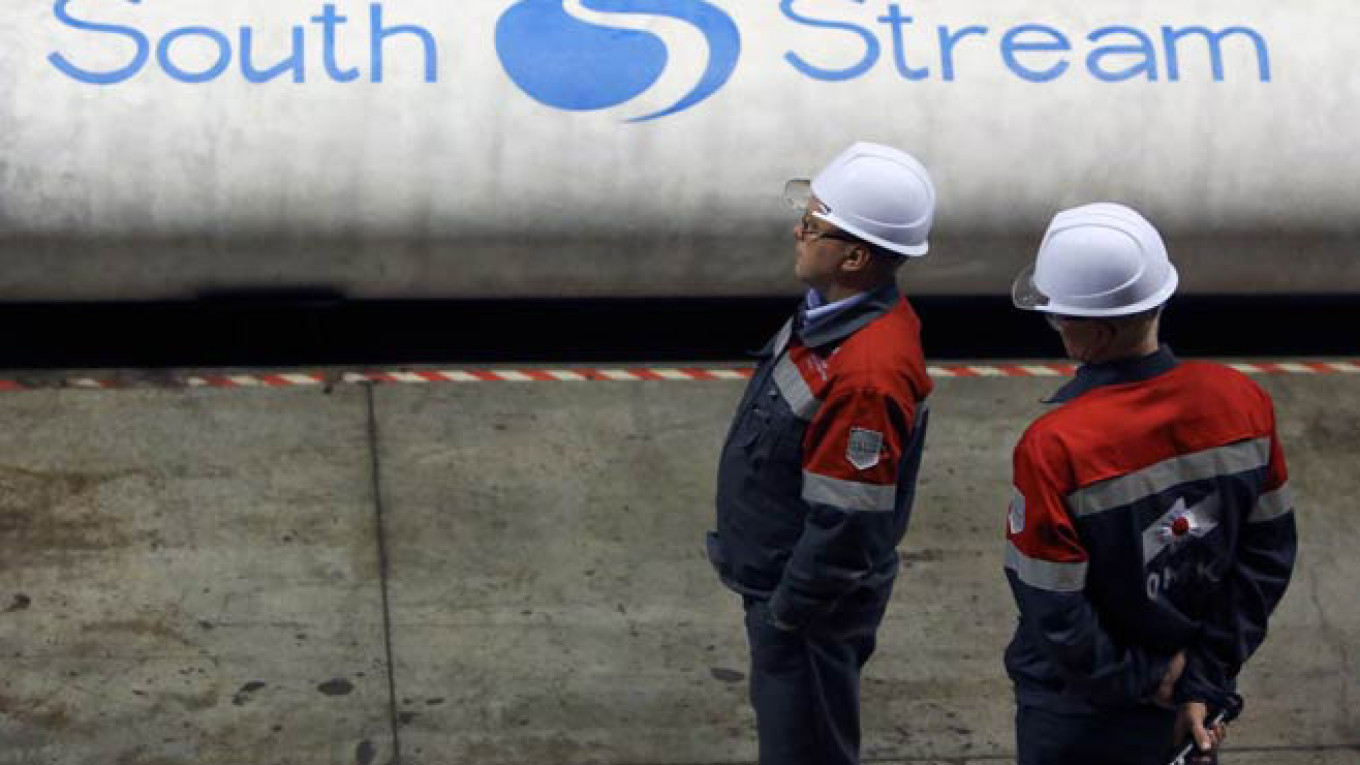ANKARA, Dec 1 — Russia has scrapped the South Stream pipeline project to supply gas to southern Europe without crossing Ukraine, citing EU objections, and instead named Turkey as its preferred partner for an alternative pipeline, with a promise of hefty discounts.
The EU, at loggerheads with Moscow over Ukraine, and keen to reduce its energy dependence on Russia, had objected to the $40 billion South Stream pipeline, which was to enter the EU via Bulgaria, on competition grounds.
The proposed undersea pipeline to Turkey, with an annual capacity of 63 billion cubic meters (bcm), more than four times Turkey's annual purchases from Russia, would face no such problems. Russia offered to combine it with a gas hub at the EU's southeastern edge, the Turkish-Greek border, to supply southern Europe.
Alexei Miller, the chief executive of Russia's state-controlled gas exporter Gazprom, told reporters in Ankara, where he was on a one-day visit with Russian President Vladimir Putin, that South Stream was "closed. This is it."
Putin accused the EU of denying Bulgaria, heavily dependent on Russian gas, its sovereign rights, and said that blocking the project "is against Europe's economic interests and is causing damage".
He announced that Russia would grant Turkey a 6 percent discount on its gas imports from Russia for next year, supplying it with 3 bcm more than this year.
Miller said Gazprom had signed a memorandum of understanding with Turkey's Botas on the pipeline under the Black Sea to Turkey.
But the plan remains at an early stage. Russian Energy Minister Alexander Novak said "energy ministers and companies [on both sides] were ordered to look into these proposals in detail … It is hard to assess the costs, financial mechanisms, terms of fulfillment for now."
He also said Turkey was seeking a 15 percent discount for Russian gas.
At Odds With the EU?
Nevertheless, EU-candidate Turkey's deepening energy ties with Russia are likely to raise eyebrows in Europe and the U.S., coming as Western powers have imposed economic sanctions on Moscow over its actions in Ukraine, and as Europe tries to lower its energy dependence on Russia, which supplies about 30 percent of its gas needs, half of that via Ukraine.
"As our cooperation develops and deepens, I think we will be ready for further price reductions," Miller told reporters in Ankara. "As we develop our joint projects … the level of gas price for Turkey could reach the one Germany has today."
The South Stream pipeline had exposed cracks in EU strategy as Hungary, Austria, Serbia and Bulgaria among others saw it as a solution to the risk of a repeat of supply disruptions via Ukraine, while Brussels and Washington saw the project as entrenching Moscow's energy stranglehold on Europe. Yet its appeal has waned as economic growth has stalled, and with Azeri Caspian gas due to land in Italy from 2020.
Carlos Pascual, who until earlier this year was the top energy diplomat at the U.S. State Department, said there was no way that the cancellation of the pipeline damages Europe.
"One could actually argue that in the end this will save European consumers money by eliminating an unnecessary high cost pipeline that would not have added any additional new supply," he said.
Pascual said Gazprom's action could show the effects of U.S. and EU sanctions imposed on Russia for its aggression toward Ukraine. "At a point in time when capital was unlimited, perhaps Russia would not have taken this action," he said.
A Gazprom analyst agreed the sanctions may have been a factor. "By invading Crimea, Putin has created a major barrier for the South Stream project," said Mikhail Korchemkin, with East European Gas Analysis. "Gazprom was unable to raise money for the project," after the sanctions went into place, he said.
Russia is already Turkey's main energy supplier, and Turkey Russia's second biggest trade partner after Germany. Those economic interests have outweighed deep differences over Ukraine and especially Syria's nearly four-year-old civil war.
While Russia backs Syrian President Bashar Assad, Turkish President Tayyip Erdogan has become his most vocal critic, lambasting the UN Security Council, and Russia in particular, for stalling on an international response to the war.
"President [Putin] has a different assessment to us," Erdogan told their joint news conference. "We agree a solution is needed, but we differ on the means."
A Message from The Moscow Times:
Dear readers,
We are facing unprecedented challenges. Russia's Prosecutor General's Office has designated The Moscow Times as an "undesirable" organization, criminalizing our work and putting our staff at risk of prosecution. This follows our earlier unjust labeling as a "foreign agent."
These actions are direct attempts to silence independent journalism in Russia. The authorities claim our work "discredits the decisions of the Russian leadership." We see things differently: we strive to provide accurate, unbiased reporting on Russia.
We, the journalists of The Moscow Times, refuse to be silenced. But to continue our work, we need your help.
Your support, no matter how small, makes a world of difference. If you can, please support us monthly starting from just $2. It's quick to set up, and every contribution makes a significant impact.
By supporting The Moscow Times, you're defending open, independent journalism in the face of repression. Thank you for standing with us.
Remind me later.


